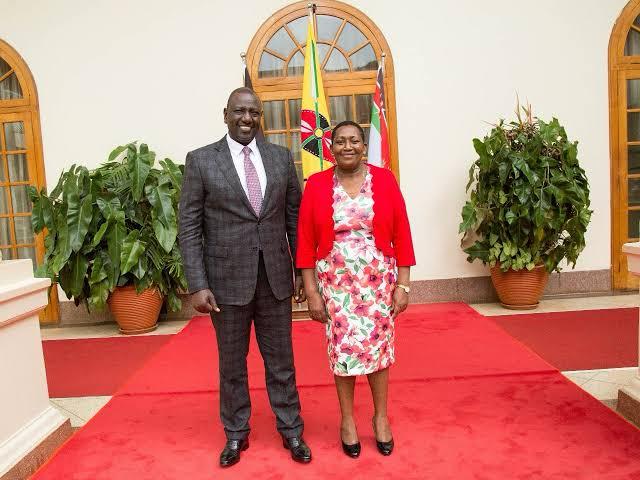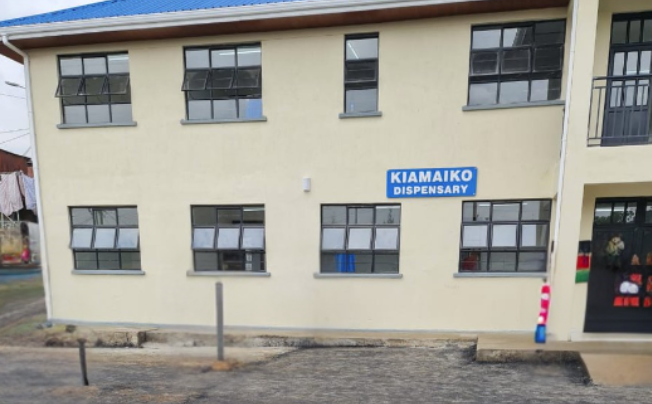A row is brewing between the Communications Authority of Kenya and the Public Procurement Regulatory Authority over a Ksh 2.5 billion tender.
The tender is intended to allow CA to acquire a revenue assurance system.
The disagreement began after some bidders in the tender protested the procurement process, citing interference and bias.
This followed claims that CA allegedly tried to sideline some bidders while favouring others by introducing a clause requiring that a bidder must have handled a project in Africa with a subscriber base of 140 million.

A total of 18 bidders wrote to PPRA complaining of skewed specifications and requested a review of the process.
Other insiders claimed interested parties have inflated the cost from Sh2.5 billion to Ksh 4 billion.
“They have since issued another addendum ignoring complaints from over 18 bidders and this means only one company will respond,” said an insider.
The insider added that CA chairperson Mary Mungai had instructed Director General David Mugonyi to disregard the objections raised by PPRA because she has backing from a senior figure in government.
PPRA wrote to CA on April 15, 2025, directing a halt to the process.
“It is in this regard therefore that you are required to take appropriate and timely action(s) to address the matters raised herein and confirm that the pre-qualification process is conducted in line with the applicable Public Procurement Law and guiding principles as guided above.
This should include termination of the procurement process and a thorough review of the criteria to promote fairness and value for money,” reads part of the letter.
“Further, you are required to notify the Authority with documentary evidence of the action(s) taken to address the same in writing by 17th April, 2025.”
PPRA stated that the tender had been published on the Public Procurement Information Portal.
It also advised that the same should be uploaded on the PPIP portal (www.tenders.go.ke).
The Authority described the requirement that bidders submit audited accounts for 2021, 2022, and 2023 for the proposed bidder (or lead bidder in case of an association/consortium/JV) with a minimum average turnover of Kshs. 25 billion or USD 200 million over three years as exclusionary.
“MR10 is highly exclusionary and unfair as it locks out other interested candidates who can provide the system even if they do not meet the minimum average turnover of Kshs. 25 billion,” the letter read.
PPRA directed that the criteria be adjusted to allow broader competition in line with Section 3 of the Act and Article 227 of the Constitution of Kenya, 2010.
Another clause requiring bidders to show evidence (award letter or contract) of having handled three or more similar projects within the last five years, with each covering a minimum subscriber base of at least 140 million, was described as impractical.
“The requirement of a 140 million subscriber base for each of the three projects may be unrealistic. Also, a letter of award may not necessarily confirm the successful delivery of previous contracts.
Therefore, the Authority recommends that a certificate of practical completion from past projects should be provided as it would offer a clearer view and better evaluation result. Additionally, the figure of 140 million should be reviewed downward to promote a more open process among the bidders.”
Another clause required that bidders must present evidence (award letter or contract) from a government ICT/Telecommunication Regulatory Authority, or a similar agency, for three comparable projects. This was also seen as overly restrictive.
“The Authority finds MR12 to be exclusionary.
There are very few government agencies globally regulating the telecommunication sector.
The likelihood of a capable candidate having worked with such agencies is quite low even if they are otherwise qualified to deliver on the system requirements.”
It was also noted that the listed mandatory requirements do not align with Regulation 155 (5)(b) and Regulation 144 (1) and (2) of the Public Procurement and Asset Disposal Regulations, 2020.
These regulations require clarity on the transfer of knowledge in the event a foreign bidder wins the project.
The dispute has stirred disquiet at CA, with some aggrieved parties threatening legal action.
This follows reports that certain interested groups plan to proceed with the procurement process regardless of the Authority’s directive.











































